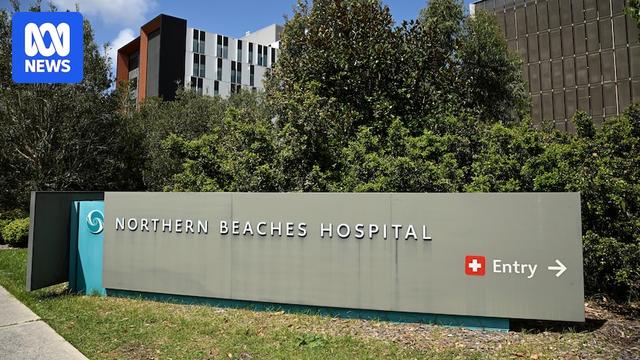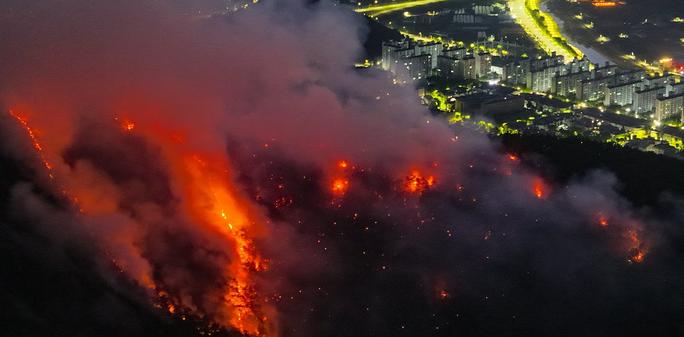So there's a lot of commentary around the collapse of private hospital operator Healthscope. To me, one detail jumped out: https://www.abc.net.au/news/2025-05-27/healthscope-collapse-an-early-warning-sign-for-private-hospitals/105339244
"Owned by the Canadian-American investment firm Brookfield, the indebted operator fell into receivership on Monday after its syndicate of banks and hedge funds withdrew support."
So wait, who exactly is Brookfield?
This from Wikipedia:
"Brookfield Corporation is a Canadian multinational company that is one of the world’s largest alternative investment management companies. It has over US$900 billion of assets under management, much of which is workers’ deferred income from global public pension funds. It focuses on direct control investments in real estate, renewable power, infrastructure, credit and private equity. The company invests in distressed securities through Oaktree Capital, which it bought in 2019."
https://en.wikipedia.org/wiki/Brookfield_Corporation
In other words, it's a private equity firm.
The pattern for private equity is to buy out companies, funded by loading them to the brim with debt, then pay for that debt by stripping out assets and massively cutting costs.
So let's take a look at the original media release for when Brookfield took over Healthscope:
"Brookfield Business Partners L.P. (NYSE:BBU) (TSX:BBU.UN) ("Brookfield Business Partners") together with institutional partners (collectively “Brookfield”), is pleased to announce that it has reached an agreement to acquire up to 100% of Healthscope Limited (ASX: HSO) (“Healthscope” or the “Company”) for approximately $4.1 billion (AUD$5.7 billion). Healthscope is the second largest private hospital operator in Australia and the largest pathology services provider in New Zealand.
...
"The transaction will be funded with up to $1.0 billion of equity, $1.4 billion of long-term financing and $1.7 billion from the sale and long-term leaseback of 22 wholly-owned freehold hospital properties."
Let's run over that again.
This private equity firm took over a $4.1 billion private hospital firm.
It only paid $1 billion in equity.
A further $1.4 billion was debt. That's $1.4 billion for a company that's only worth $4.1 billion.
And then $1.7 billion from selling off and then leasing back its hospitals. That's the asset strip out.
So the company ended up with $1.7 billion less in assets, $1.4 billion more in debt, and the added costs of leasing those hospitals. And it was only worth $4.1 billion to begin with.
Starting to see why it went under?
The asset stripout continued in 2020:
"Healthscope has entered into a binding agreement to sell its New Zealand pathology business, Asia Pacific Healthcare Group (APHG) to the NZ Super Fund and Ontario Teachers’ Pension Plan Board (Ontario Teachers’) who will each take a 50 percent stake.
"The sale is valued at more than NZD550 million and is subject to customary approvals including approval from New Zealand’s Overseas Investment Office, with completion expected in the next six months."
https://www.nzsuperfund.nz/news-and-media/healthscope-sells-new-zealand-pathology-business-aphg-to-nz-super-fund-and-ontario-teachers-pension-plan/
But that's not the end of it.
Because Helathscope went through the private equity wringer not just once, but twice.
This from 2010:
"Private equity firms TPG and Carlyle won a bidding war for Australian hospital owner Healthscope Ltd , agreeing to pay $1.73 billion in the country's largest buyout deal since 2007."
https://www.reuters.com/article/business/tpg-carlyle-to-buy-australias-healthscope-for-17-billion-idUSTRE66H2KB/
The company was then floated back on the stock market in 2014:
"Healthscope chief executive Robert Cooke has persuaded local and foreign investors to back the company's $3.6 billion float, with shares in Australia's biggest initial public offering in four years set to start trading on Monday.
...
"Mr Cooke said his greatest contribution to the turnaround of the private hospital, medical centre and pathology operator had been an ability to balance an improvement in patient care with a financial benefit.
"That pitch, along with a $436 million capital expenditure program to expand the company's 44 private hospitals, and an ageing population that is spending more than ever on medical care, persuaded investors to support the $2.25 billion raise.
"The company is being offloaded by private equity giants TPG and The Carlyle Group, which took it private in 2010 in a $2.7 billion buyout. It will begin trading at a hefty 21.9-times forecast net profit. TPG and Carlyle will retain 38 per cent of the shares on offer."
https://www.smh.com.au/business/investors-inject-billions-into-healthscope-float-20140725-3ckw8.html
#auspol #ausbiz #business #capitalism




